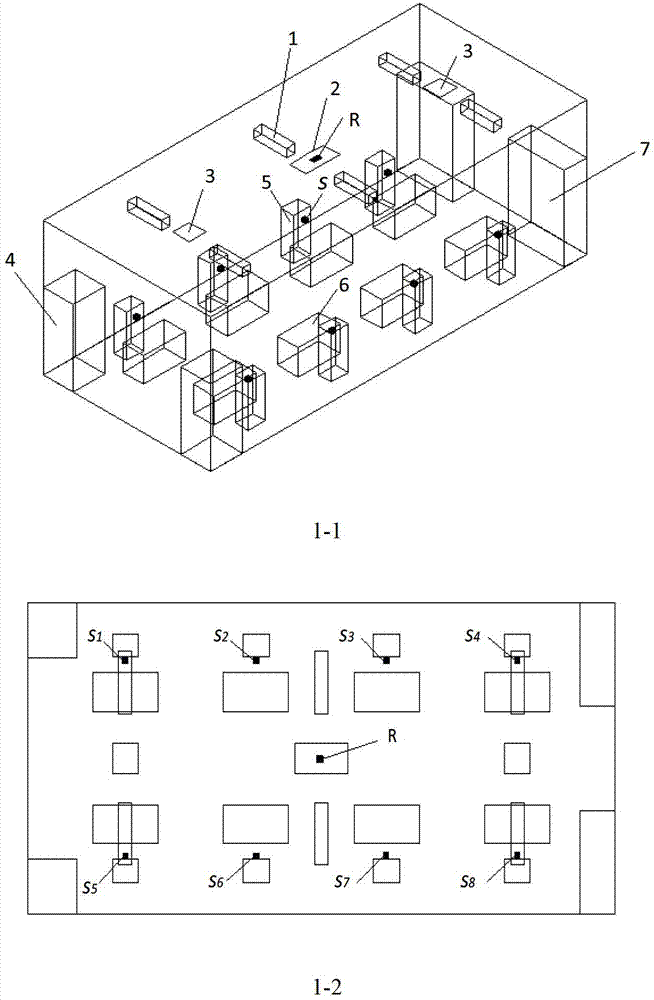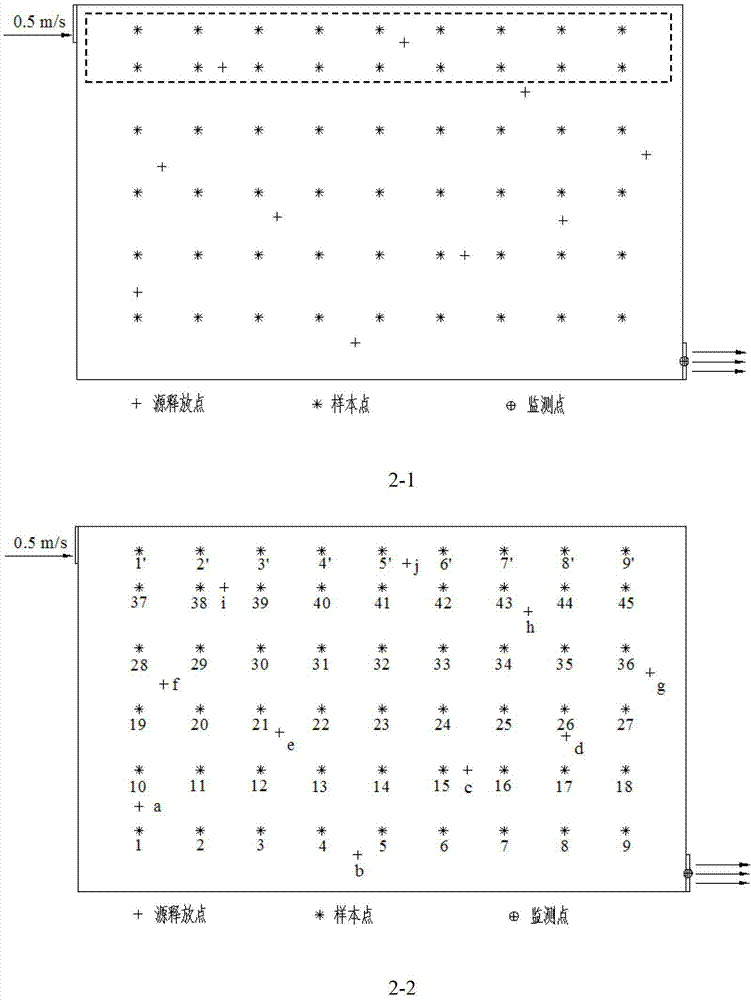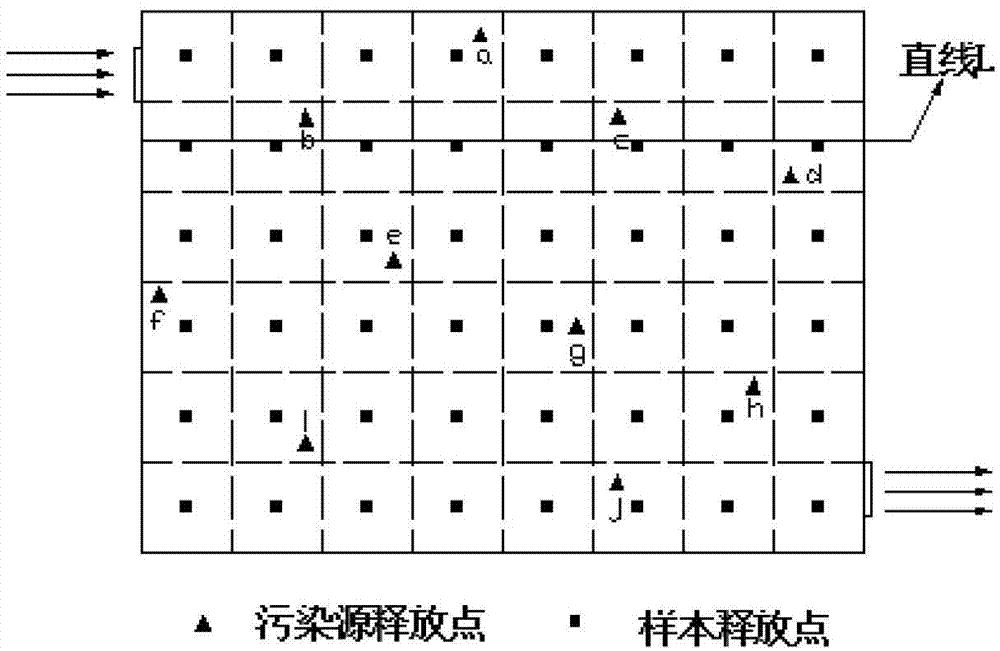Pollution source identification method based on correlation coefficient and monitoring stationing method
A technology of correlation coefficient and identification method, which is applied to the identification of the release position of unknown pollution sources in indoor space and the field of inverse problem identification, which can solve problems such as rough calculation accuracy, and achieve the effect of reducing the number of points, increasing the accuracy and reducing the harm.
- Summary
- Abstract
- Description
- Claims
- Application Information
AI Technical Summary
Problems solved by technology
Method used
Image
Examples
Embodiment Construction
[0045] The technical scheme of the pollution source identification based on the correlation coefficient and the improved high-efficiency point distribution identification method of the present invention will be described in detail below in conjunction with the accompanying drawings and specific implementation scenarios:
[0046] For example, the recognized object is a three-dimensional conference room. established as figure 1 The three-dimensional model of the conference room shown has a length (X)×width (Y)×height (Z) of 9m×4m×3.2m, and there are two air inlets 3 (0.4m×0.4m) on the top of the room. The air volume is 0.128m 3 / s; in the middle of the top of the room is the air outlet 2 (0.8m×0.4m), and the wall of the indoor space is set as a non-slip adiabatic wall; In a fixed position, the height of sitting and standing is 1m, and there is a corresponding desk in front of each person with a height of 0.6m. The simulated potential source of virus infection is located in the...
PUM
 Login to View More
Login to View More Abstract
Description
Claims
Application Information
 Login to View More
Login to View More - R&D
- Intellectual Property
- Life Sciences
- Materials
- Tech Scout
- Unparalleled Data Quality
- Higher Quality Content
- 60% Fewer Hallucinations
Browse by: Latest US Patents, China's latest patents, Technical Efficacy Thesaurus, Application Domain, Technology Topic, Popular Technical Reports.
© 2025 PatSnap. All rights reserved.Legal|Privacy policy|Modern Slavery Act Transparency Statement|Sitemap|About US| Contact US: help@patsnap.com



